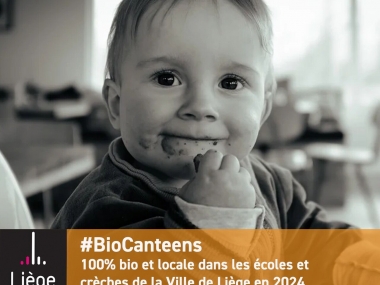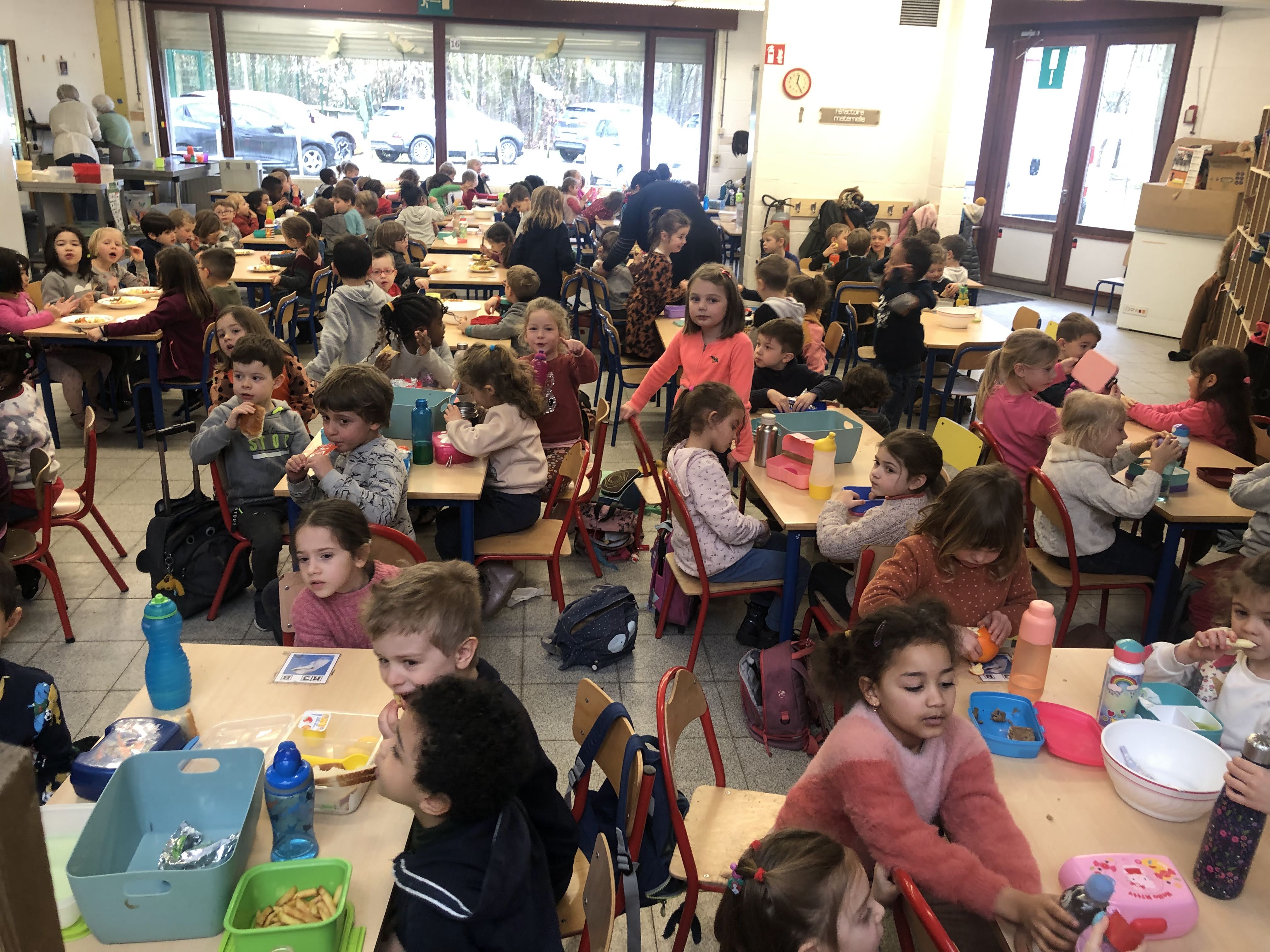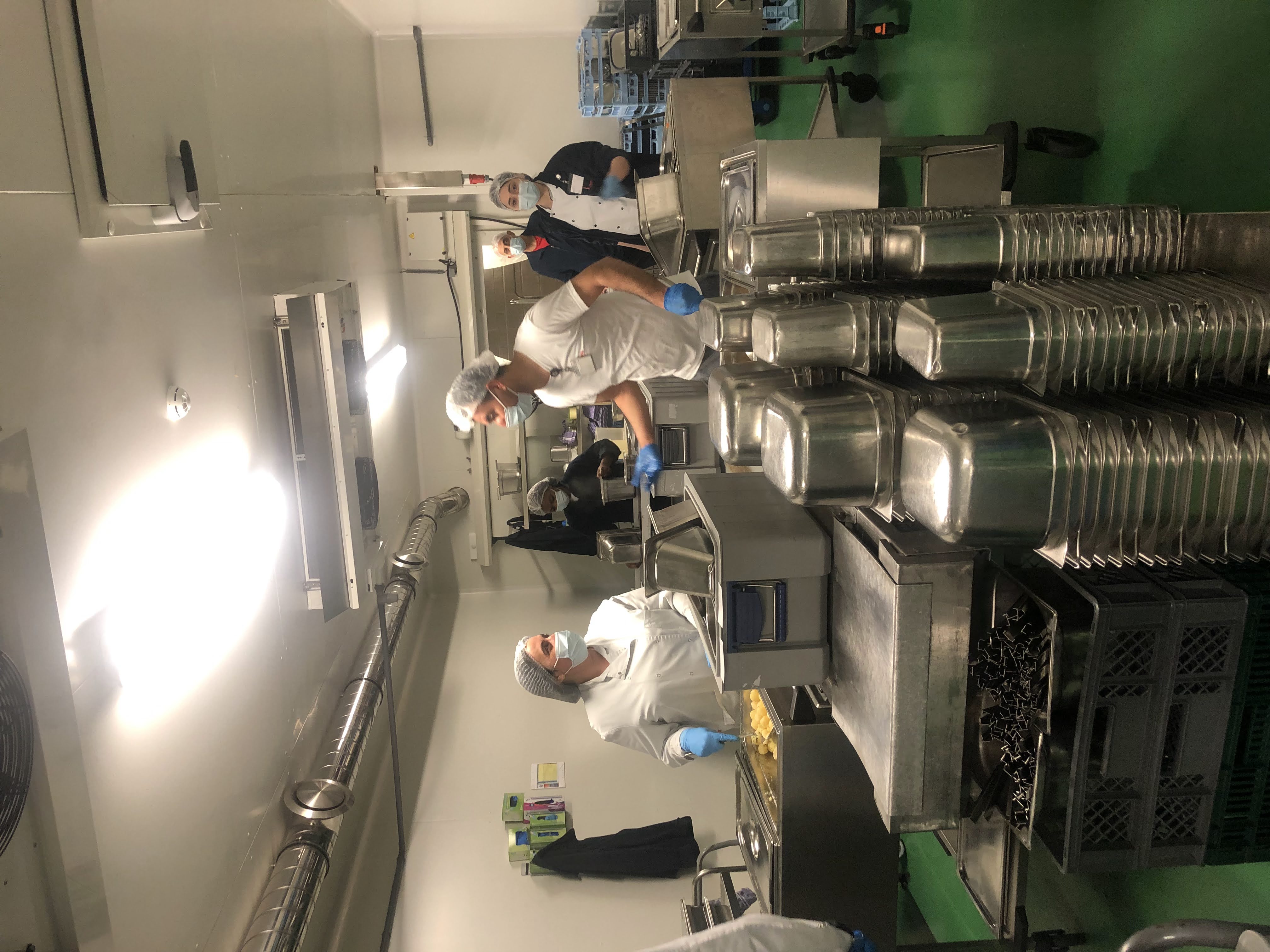How BioCanteens accelerated local food initiatives in Liège?
Edited on
31 March 2022The particularity of the Transfer of Good Practices, promoted in the URBACT Transfer Networks, is that they play a different role depending on the Partner City. In some cases, it kicks starts a transformation process and helps set the basis of a resilient project. In other cases, it is an accelerator of a local dynamic with a long history behind it. This is the case of Liège, the civil society and political panorama was already shaping a food policy framework at the local level. "BioCanteens#2 arrived at the perfect moment for us, because we were ready to quickly learn and react to innovation", says the Coordinator of BioCanteens#2 from the City of Liège.

Sustainable food and short circuits are part of the priorities of the City of Liège for several years.
The URBACT BioCanteens Transfer Network #2 project highlights existing and complementary actions related to the theme, such as the local producers' market (Marché Court-Circuit), the CREaFARM food production relocation programme, the ongoing creation of a logistics hub in Droixhe to centralise the distribution and transformation of local products, and the implementation of sustainable canteens in kindergardens and primary public schools in collaboration with ISOSL, the inter-municipal company that produces school meals.
The BioCanteens programme has been a trigger for better collaboration between the Municipality's teams with the public education staff and the the ISOSL inter-municipal staff (cooks, administration)

Since the beginning of the programme and since the City Visit from the Lead Partner in September, ISOSL and the City have, for example
- adapted the menus to include organic, local, healthy, fresh and seasonal products
- modified 4 out of 9 public food contracts for schools and nurseries to achieve 100% organic and local food by 2024
- set up a working dynamic between the cooks and our schools (with a pilot project involving 9 local schools)
- developed a smart-phone application to make it easier for parents to order meals
- set up training courses on sustainable food for catering assistants
- carried outweighing in schools and kitchens to measure and identify sources of food waste
All thes practices generate a multiplication of micro-changes which, summed together, result in a profound and systemic change.
Every day, 200,000 hot meals are served in Wallonia's public catering sector. This figure makes this sector a major challenge for the transition of the Walloon food system.
In canteens, introducing sustainable products is not always easy. Many factors slow down these exchanges: logistics (quantities, transport, ordering system, storage, etc.), the nature of the foodstuffs (processed, raw, etc.), the price (low budget for canteens versus remunerative price for producers), the regulations governing public contracts, etc.

The transition to sustainable food in community kitchens is now perceived as a necessity and many organisations want to engage in sustainable canteen projects. Public procurement is one of the levers frequently mentioned to make it operational. This is the bet we made at ISOSL.
Indeed, a change in the food served in the canteens would have multiple benefits. In terms of health, rebalancing the menus and composing them with better quality products seems essential when we know, for example, that in Belgium, 4 out of 5 children do not eat enough fruit and vegetables and that 20% of teenagers under 16 are overweight. On the economic level, supplying local products and paying producers a fair wage would strengthen local industries and the food resilience of our territories. In terms of ecology, serving meals made with food produced without chemical inputs has a significant impact on soil quality, biodiversity and consumer health.
In short, our objectives are to review the menus to serve healthy and balanced meals, to reduce food waste and packaging, to increase the quantity of organic, local and fair trade products while controlling our meal production costs... Our strategy is systemic, from the farm to the fork.
Written by Davide Arcadipane
Cabinet attaché - Maggy YERNA
Referent in short circuits, urban agriculture and sustainable food for the City of Liege
Submitted by Clara Garrone on
